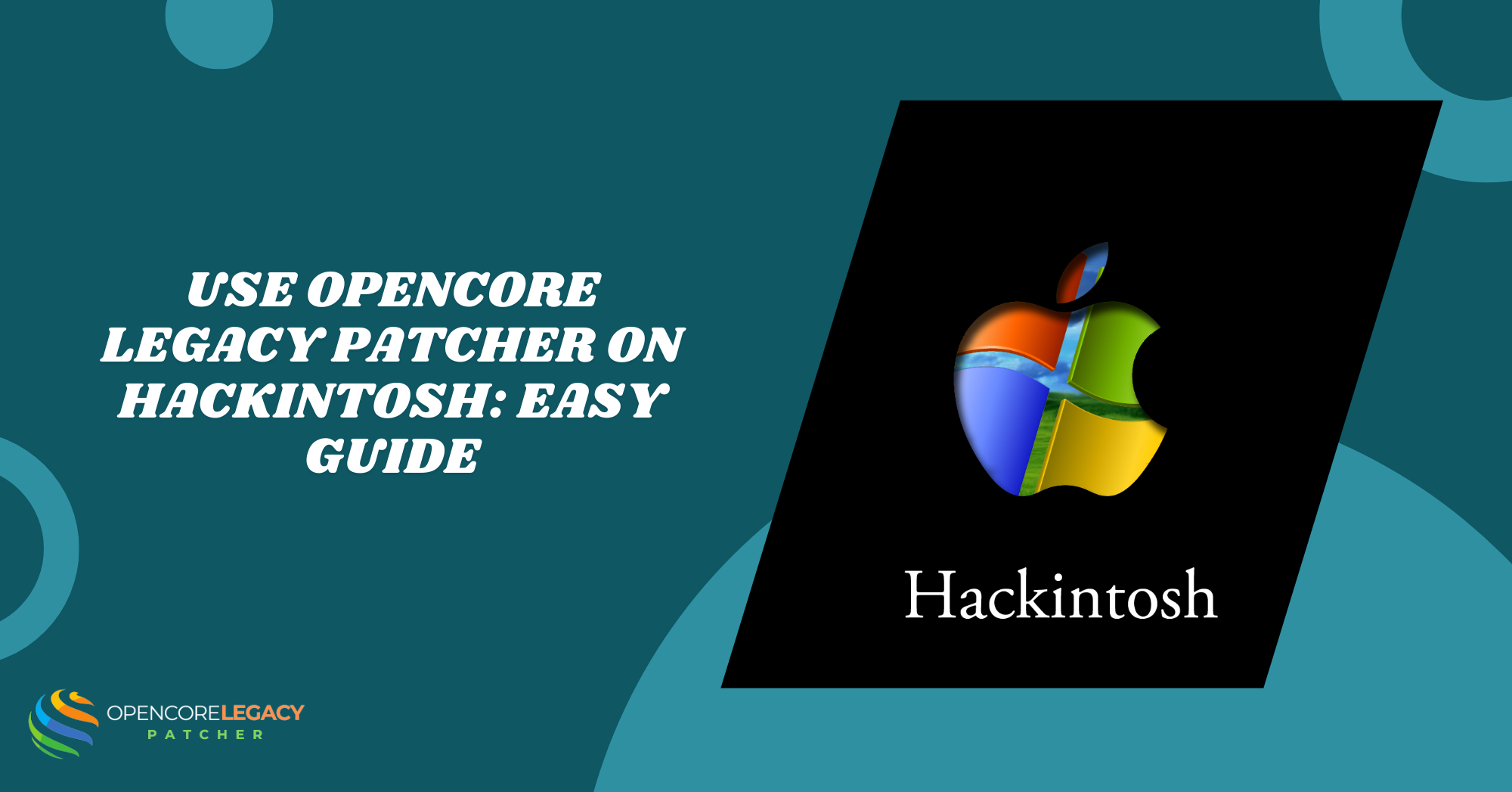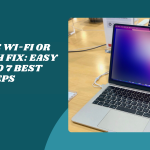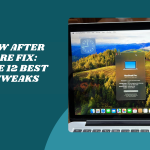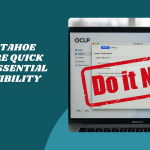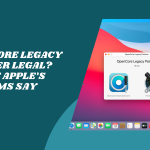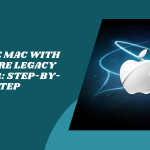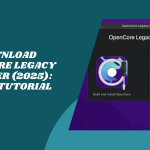Table of Contents
ToggleIntroduction to Hackintosh and OpenCore Legacy Patcher
Creating a Hackintosh—running macOS on non-Apple hardware—is a popular workaround for users who love macOS but don’t want to buy a Mac. It requires a blend of clever software, compatible hardware, and lots of patience.
One of the key components in a successful Hackintosh build is the bootloader, and to use OpenCore Legacy Patcher on Hackintosh is important.
Understanding Hackintosh Systems
Hackintosh systems are built on custom PCs that mimic a Mac’s environment. They trick macOS into thinking it’s running on Apple hardware. This requires patching boot processes, injecting drivers, and configuring EFI folders to achieve a stable, bootable macOS setup.
What OpenCore Legacy Patcher Was Originally Made For
OpenCore Legacy Patcher (OCLP) was created to breathe life into older Macs no longer supported by Apple. It helps real Apple hardware bypass software restrictions to run the latest versions of macOS—such as Ventura or Sonoma—on unsupported machines. It’s not meant for use on Hackintosh systems, which have entirely different boot needs.
What Makes a Hackintosh Different from a Mac?
Hackintosh and Mac might run the same operating system, but how they get there is very different. Hackintoshes require extra effort to simulate Apple’s closed ecosystem and make macOS feel at home on third-party hardware.
Key Differences in Hardware and Bootloaders
Macs are built with specific chips, firmware, and drivers—all designed to work with macOS. Hackintoshes use generic PC components, so they need a bootloader like OpenCore to handle everything from CPU compatibility to GPU injection. These systems also require extra kexts (macOS drivers) to mimic Apple’s environment.
Why Hackintoshes Need Special Configuration
Unlike Macs, which come pre-tuned for macOS, Hackintoshes have to be manually configured. You’ll need to tweak BIOS settings, patch ACPI tables, and configure EFI folders to get things working. And since macOS isn’t designed to work on this hardware, every update or change can break functionality without warning.
Can You Use OpenCore Legacy Patcher on a Hackintosh?
It might seem like OCLP could be helpful for a Hackintosh, especially since it enables unsupported macOS versions. But spoiler alert—it’s not recommended. OCLP is strictly for real Macs, and trying to use it on a Hackintosh can introduce problems instead of solutions.
Official Support Status and Limitations
The developers of OpenCore Legacy Patcher have made it clear: the tool is only intended for actual Apple hardware. It doesn’t include the extra tools and scripts needed for a Hackintosh. Using it outside its intended purpose may lead to incomplete patches, boot loops, or total failure to launch.
Potential Risks and Compatibility Barriers
Trying to apply OCLP to a Hackintosh might result in unstable performance, missing drivers, or even a non-bootable system. Since it’s not designed to handle PC hardware quirks, it simply can’t provide the flexibility needed for a proper Hackintosh experience.
Why OpenCore (Not the Patcher) Is Preferred for Hackintosh
If you’re building a Hackintosh, your go-to tool should always be the standard OpenCore bootloader—not the Legacy Patcher. It’s the backbone of most modern Hackintosh builds, offering deep customization and robust support.
The Role of OpenCore Bootloader in Hackintosh Builds
OpenCore serves as the brain behind Hackintosh compatibility. It injects the right kexts, patches memory, manages drivers, and handles quirks that would otherwise prevent macOS from booting. Unlike OCLP, it’s highly customizable and adaptable to various PC hardware.
Differences Between OpenCore and OCLP Functionality
OpenCore is the foundational bootloader used by both Hackintoshes and OCLP, but OCLP layers additional patches for Macs only. On a Hackintosh, OCLP won’t know how to patch PC components. OpenCore, on the other hand, is built from the ground up to be flexible and modular, making it ideal for non-Apple systems.
When Might Someone Try to Use OCLP on a Hackintosh?
It’s not uncommon for new Hackintosh users to stumble across OpenCore Legacy Patcher and assume it might help them install macOS on their custom-built PC. The name alone can be a bit misleading if you’re not yet familiar with the difference between OpenCore and OCLP.
Misunderstandings About Tools
Many users confuse OpenCore with OpenCore Legacy Patcher, thinking they’re interchangeable. While they share a name, they serve very different audiences. OCLP is a helper tool for real Macs—not a full bootloader for Hackintosh hardware.
Unintended Use Cases and Why They May Fail
Using OCLP on a Hackintosh can seem like a shortcut, but it often leads to frustration. It doesn’t include the specific patches or drivers needed for PC components. The result? Failed boots, missing graphics acceleration, or complete installation crashes.
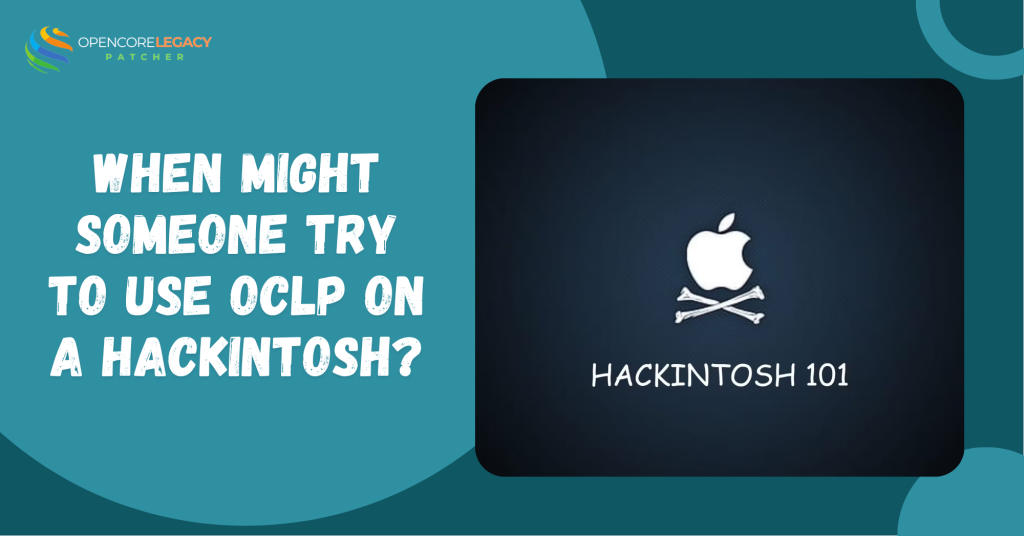
Alternatives to OpenCore Legacy Patcher for Hackintosh
If you’re building or maintaining a Hackintosh, your toolkit should never include OCLP. Instead, focus on tried-and-tested methods specifically tailored for non-Apple hardware. These tools offer more control and flexibility for every component of your system.
Using OpenCore Properly on Custom Builds
Stick with the mainline OpenCore bootloader, available on GitHub. Pair it with resources like Dortania’s OpenCore Install Guide, which offers detailed instructions tailored to your specific CPU, GPU, and motherboard. This method ensures stability and long-term support.
Tools and Resources for Maintaining Hackintosh Systems
There’s a vibrant community around Hackintosh projects. Forums like r/Hackintosh, InsanelyMac, and the OpenCore guide website offer patches, troubleshooting tips, and build advice. Keeping your system clean and well-documented is the key to making future updates less painful.
No More Limits! Use OpenCore to Maximize Your Mac’s Potential
Patch Smarter, Not Harder—Get the Tools You Need for Modern macOS on Older Hardware!
Risks of Using OCLP on Non-Mac Hardware
While it might be tempting to experiment, using the wrong tool in the wrong system can quickly lead to disaster. OpenCore Legacy Patcher simply isn’t equipped to handle the unique demands of custom-built PCs.
Boot Failures and System Instability
Without proper boot arguments and kexts, your Hackintosh may refuse to start—or worse, crash mid-use. OCLP doesn’t support the custom injection of PC-specific drivers, making it unreliable for anything outside of Mac hardware.
Unsupported Kexts and Driver Issues
Hackintosh setups often rely on custom kernel extensions to enable things like Wi-Fi, audio, or GPU support. OCLP doesn’t provide those for PCs. So if you try to use it, you’ll likely run into broken functionality or missing features you can’t easily recover from.
Community Recommendations and Best Practices
The Hackintosh world thrives on shared knowledge, and when it comes to OpenCore Legacy Patcher, the advice is pretty clear: avoid using it on custom-built PCs. The community has collectively tested, broken, and refined their systems to know what works—and OCLP isn’t it.
What the Hackintosh Community Suggests
For Hackintosh setups, the standard OpenCore bootloader is your best friend. Pair it with detailed resources like Dortania’s Install Guide, and you’ll get a setup tailored to your exact hardware. Many users also recommend staying active in forums and Reddit threads, where new solutions pop up regularly.
Trusted Resources and Setup Guides
Stick with trusted sources that are designed specifically for Hackintosh builds. Dortania’s guides, OpenCore GitHub releases, and user-tested EFI folder examples are goldmines. These tools are built with your hardware in mind—not retrofitted from tools made for old Macs.
Conclusion: Should You Use OpenCore Legacy Patcher on a Hackintosh?
If you’re building or running a Hackintosh, using OpenCore Legacy Patcher is a detour you don’t want to take. It’s made for real Macs, not PC builds, and won’t offer the compatibility or patching you need. Instead, spend time learning and using the standard OpenCore bootloader—it’s more powerful, customizable, and stable for your needs.
FAQs
Can I install OpenCore Legacy Patcher on my Hackintosh?
Technically, yes, but it’s not designed for Hackintosh use and is unlikely to work properly.
What’s the difference between OpenCore and OpenCore Legacy Patcher?
OpenCore is a general bootloader, while OCLP is a patching tool built for real Macs.
Why isn’t OCLP recommended for Hackintosh setups?
Because it’s built to patch Apple firmware and hardware—not custom PC components.
Will using OCLP damage my Hackintosh?
It probably won’t cause physical harm, but it can lead to software conflicts or non-booting systems.
What should I use instead of OCLP on a Hackintosh?
Use the standard OpenCore bootloader configured specifically for your hardware.
Can I still get macOS updates on Hackintosh without OCLP?
Yes, but you’ll need to manage kexts and bootloader updates manually.
Is there any benefit to trying OCLP on a Hackintosh?
Not really—it’s optimized for Apple hardware and doesn’t add value to Hackintosh setups.
Where can I find help setting up OpenCore for a Hackintosh?
Try forums like r/Hackintosh, Dortania’s OpenCore guide, or Hackintosh-specific Discord communities.
Read More:
- Wi-Fi or Bluetooth Not Working After Using OpenCore Legacy Patcher? Here’s the Fix
- Fix GPU & Graphics Issues on Older Macs Running Sonoma/Sequoia with OCLP
- Mac Slow After OpenCore Legacy Patcher? 12 Fixes That Actually Work
- Is macOS Tahoe Supported on OpenCore Legacy Patcher? Compatibility Guide
- How to Enable iMessage and FaceTime with OpenCore Legacy Patcher

